Have you ever wondered why water sometimes leaves your skin feeling dry? Perhaps you’ve noticed some water leaves a mineral residue on your appliances? Why is it that other times, water seems to leave your skin feeling smooth? The answer lies in the fundamental differences between hard water vs. soft water.
This article will explore the key differences between these two types of water. So, whether you’re a curious homeowner or simply interested in understanding the science behind water quality, let’s unravel the mysteries of hard and soft water.
Hard Water vs. Soft Water: What Is Hard Water?
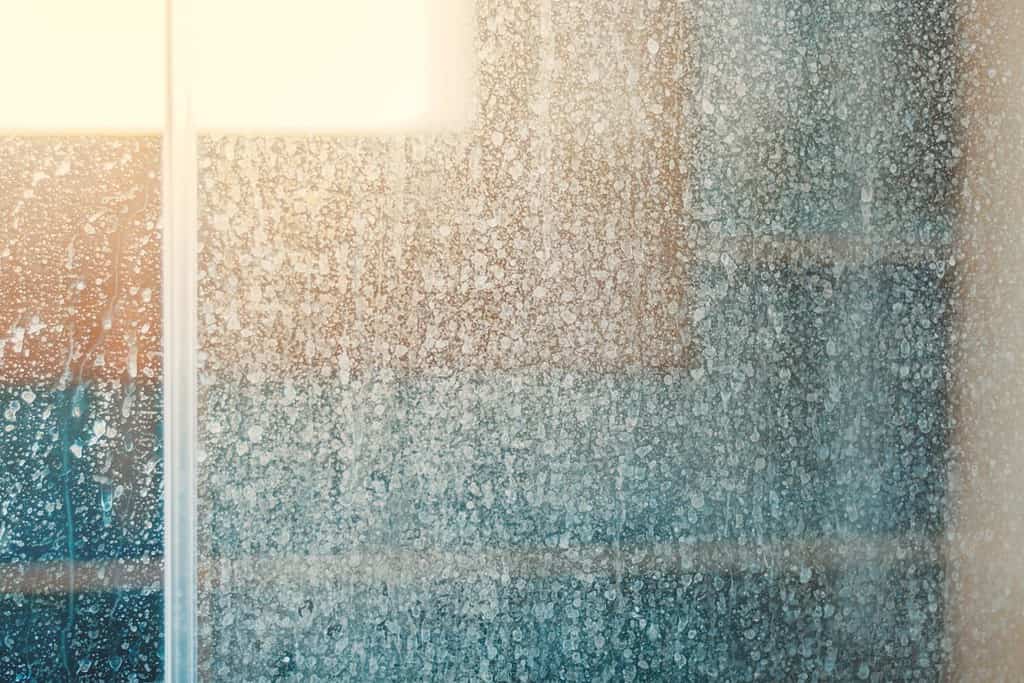
Wondering which water leaves a mineral residue on your appliances? Keep reading to find out!
©Nadezhda Akimova/Shutterstock.com
Hard water naturally contains dissolved minerals, such as calcium and magnesium. This can make it difficult to lather and rinse away soap and shampoo, leaving you with a dull, dry look. It can also cause scale build-up inside water pipes and appliances, reducing their lifespan.
Causes of Hard Water
Various factors cause hard water, but the most common culprit is calcium and magnesium. When these minerals are present in large amounts, they can be detected by the taste and even feel of the water. In addition to calcium and magnesium, other dissolved compounds such as iron and sulfur can also contribute to hard water.
The presence of these minerals is usually caused by the chemical and physical characteristics of the soil in a particular area. As water passes through the soil, it takes on these minerals, which can then be present in wells or tap water.
For instance, limestone and chalk are prevalent in areas where the soil is rich in calcium, and this can cause your water to be hard. In contrast, sandy soils are less prone to hard water, as the sand particles do not contain as much calcium and magnesium.
Knowing what causes hard water can be significant, as it can help you identify potential issues with your water supply. If you have hard water, it is also essential to understand how it can affect your lifestyle and home.
Effects of Hard Water on Plumbing and Appliances
Hard water can be detrimental to a home’s plumbing system and appliances. The minerals, such as calcium and magnesium, can build up in pipes and faucets, which can create blockages that reduce water pressure and may even cause pipes to burst over time. It can also leave white or brown stains on appliances and fixtures.
These mineral deposits also build up on appliances, such as water heaters and dishwashers, reducing efficiency. These appliances can also corrode faster due to hard water, as the minerals react with the metals.
Hard water also causes soap scum to build up on fixtures and surfaces. The minerals in the water bind together with the soaps and detergents, forming a thick residue that can be difficult to remove. This soap scum also reduces the efficacy of cleaning products, making it difficult to get things truly clean.
For households with hard water, this can lead to an increased cost of ownership for plumbing and appliances. Regular maintenance, such as descaling and softening, may be necessary to reduce the effects of hard water on plumbing and appliances.
Health Risks Associated with Hard Water
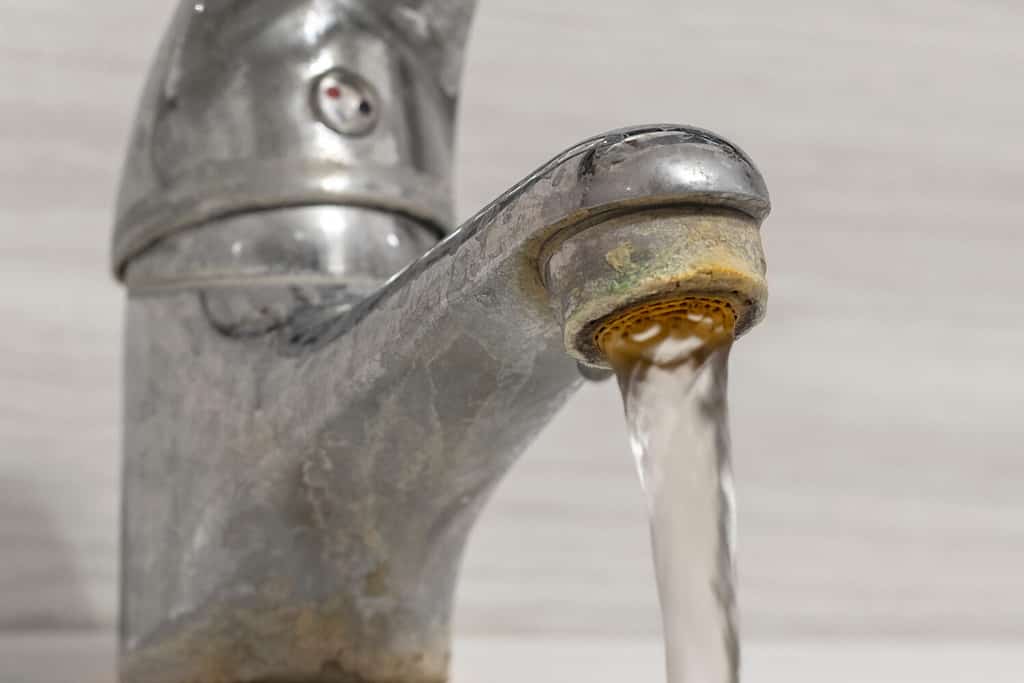
An old bathroom sink faucet with calcium buildup.
©Serhii Ivashchuk/Shutterstock.com
Hard water does not pose a significant health risk to humans. However, it can cause minor skin and hair issues such as dryness and itching. This can be particularly inconvenient for those with sensitive skin and eczema.
The minerals in hard water can build up on the skin, blocking its pores and causing irritation.
This leads to dry, itchy skin and may make skin more prone to eczema flare-ups. Therefore, people with sensitive skin should take extra precautions when showering or bathing in hard water, as the minerals can cause further irritation. One way to reduce this impact is to install a shower filter.
The minerals can also deposit on the scalp, leading to dandruff and an itchy scalp. Additionally, hard water makes it difficult for shampoo and conditioner to effectively clean the hair, resulting in dull, lifeless locks.
Hard Water vs. Soft Water: What is Soft Water?
Soft water is an increasingly sought-after resource in modern households. It is a type of treated water with partially removed calcium and magnesium ions. Soft water is usually made by passing the water through a process called ion exchange. The result is water with fewer minerals, making lathering with soaps and detergents easier.
Benefits of Using Soft Water
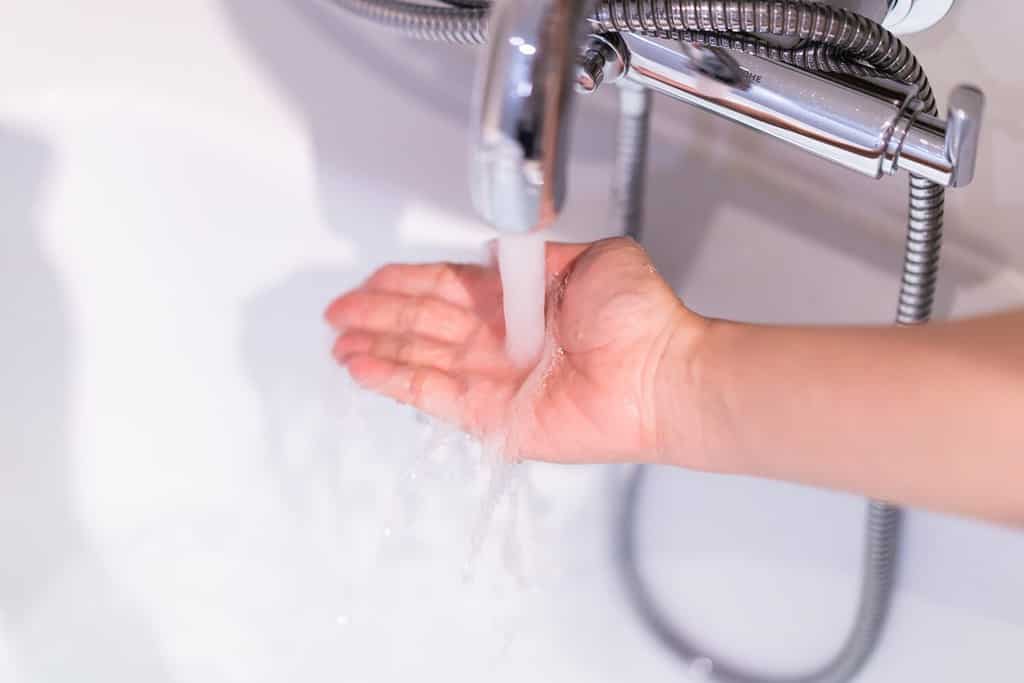
Soft water is less likely to leave residue on the skin and in the hair, so it helps improve your hair’s appearance and texture.
©DG FotoStock/Shutterstock.com
Let’s learn the benefits of having soft water in the home.
Enhanced Cleaning Ability
The lack of minerals in soft water makes it more effective at cleaning since the soap or detergent won’t have to work as hard. This means that everything from dishes to clothes will come out cleaner.
Better Skin and Hair
Hard water can cause dry skin and make getting a good lather with shampoo difficult. On the other hand, soft water is less likely to leave residue on the skin and in the hair, so it helps improve your hair’s appearance and texture.
Improved Appliance Performance
Hard water can be problematic for some appliances, such as washing machines and dishwashers. Hard water’s minerals can build up and reduce the appliance’s efficiency by clogging pipes. Soft water will keep appliances functioning more effectively for longer periods of time.
Cost Savings
The use of soft water can also save money in the long run by eliminating the need for the regular use of descaling agents and other products used to remove hard water’s minerals.
Potential Drawbacks of Soft Water
Soft water has several advantages when it comes to its use in households, providing many benefits, including better lathering of soap and shampoos, and reduced scaling on pipes. However, its use also has some potential drawbacks.
Health Concerns
Soft water has a higher sodium content than hard water, which can be an issue for those who need to restrict their sodium intake due to medical issues. Furthermore, if sodium levels are too high, it could lead to heart-related health problems.
Taste
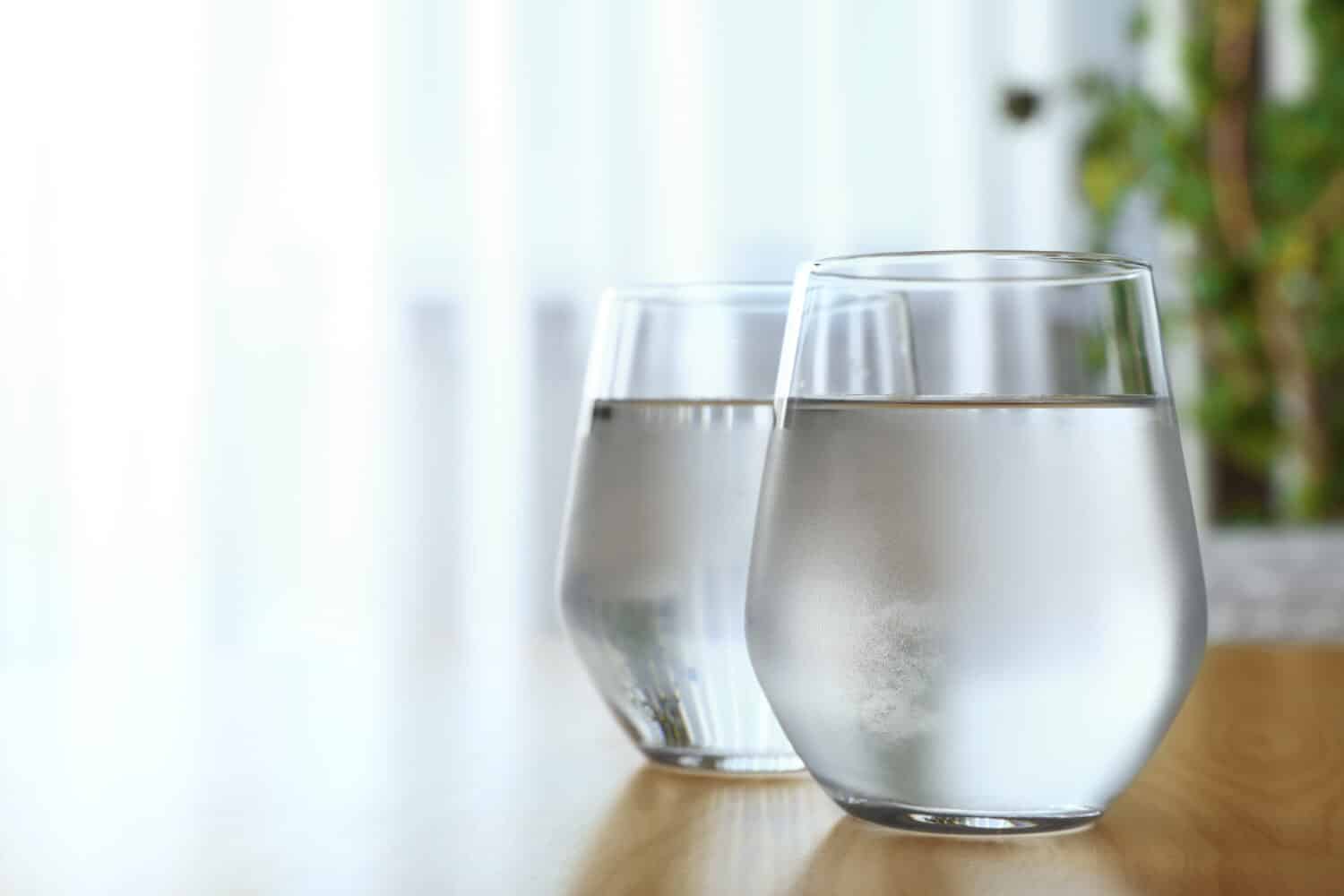
Soft water has several advantages when it comes to its use in households.
©New Africa/Shutterstock.com
Soft water has a more “flat” taste than hard water, which can take some time for people to get used to. In fact, many people find that it does not taste as good as hard water and may prefer the taste of the latter – especially if that’s what they’re used to.
Cost
Soft water can be more expensive to install and maintain than hard water, requiring specialized equipment. This can include a softener system, which can add to the overall cost of using soft water. Replacing softener systems and other associated equipment can also be expensive.
Environmental Impact
The use of soft water can negatively impact our environment, as it usually requires chemicals such as chlorine or potassium chloride to soften it. These chemicals then end up in our water supply, where they can potentially cause harm to fish and other aquatic life.
Hard Water vs. Soft Water: Key Differences
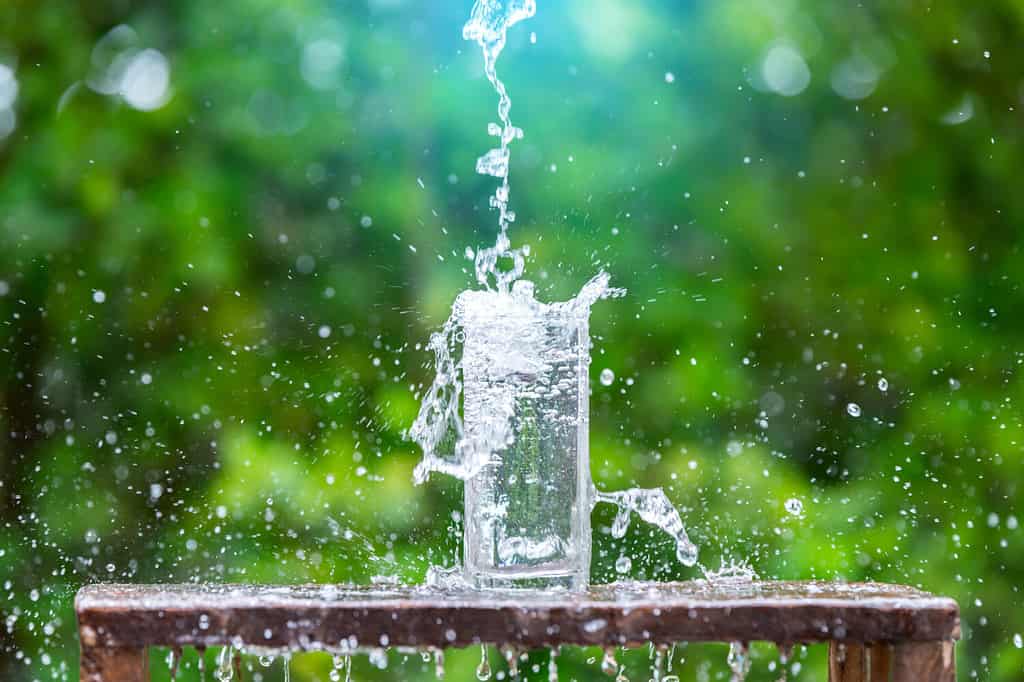
Hard water has a stronger taste than soft water, often described as “metallic,” whereas soft water has a more neutral flavor.
©Thammanoon Khamchalee/Shutterstock.com
Let’s break down the main differences between hard and soft water.
Mineral Content
Hard water contains a higher concentration of minerals such as calcium and magnesium, whereas soft water has had these minerals partially removed. As a result, hard water is known to leave behind mineral deposits on surfaces after it evaporates.
Taste and Lather Ability
Hard water has a stronger taste than soft water, often described as “metallic,” whereas soft water has a more neutral flavor. Soft water also lathers better than hard water, so it is often preferred when it comes to washing dishes and clothes.
Health Benefits and Risks
Hard water is a natural source of essential and healthy minerals like calcium and magnesium. However, it can also pose health risks if it contains high levels of contaminants such as lead. Soft water does not contain the same minerals that hard water does and therefore offers fewer benefits from a health perspective.
Plumbing Maintenance
The minerals found in hard water can build up over time in pipes and other plumbing fixtures, leading to clogging and corrosion. Soft water, on the other hand, is less likely to cause these problems, so it can help reduce the need for plumbing repairs.
Cost Considerations
Generally speaking, hard water is more affordable than soft water because it requires no special treatment or equipment. Soft water, however, typically requires a water softener system which can be costly to purchase and maintain.
Hard Water vs. Soft Water: How to Test Your Water
One way to determine whether your water is hard or soft is through a simple test. To do this, you will need a water testing kit. These kits are available online, or you can find one at your local home improvement store.
The kits usually include test strips that you need to dip into your water sample, and they will indicate the hardness of your water. The results will also tell you about any potential contaminants in your water, which can be useful information to have.
Testing the water is easy and only takes a couple of minutes.
- Fill a clean container with tap water.
- Dip the test strip into the water sample and wait for the results to appear on the strip.
- Compare the colors on the test strip to the color chart that comes with the kit. This will tell you how hard or soft your water is.
These test kits are easily available and travel-friendly, making them the perfect tool for testing your water, whether you’re at home or on the go.
Other Ways to Test Your Water
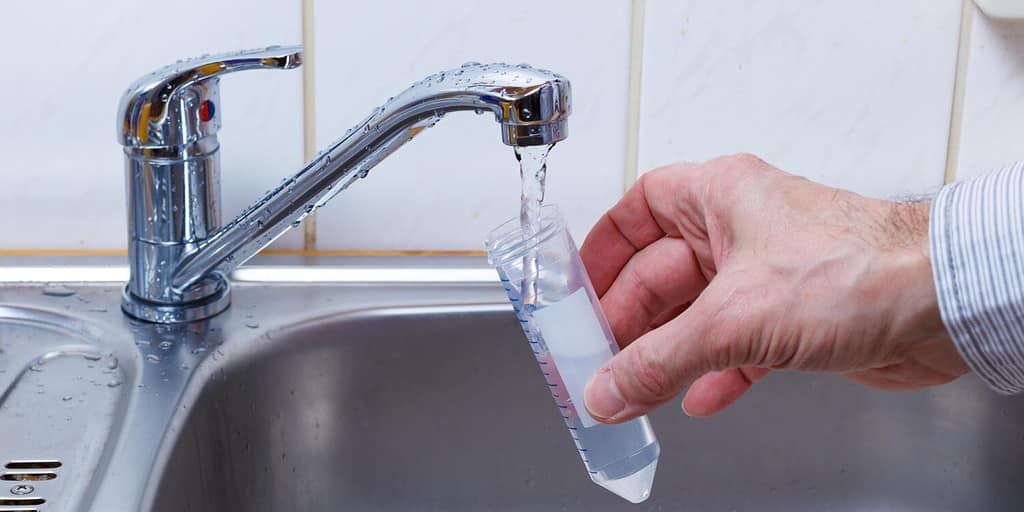
If you want more detailed results, simply send your water sample to a professional lab for testing.
©luchschenF/Shutterstock.com
Unfortunately, there is some room for human error with test strips, as it requires you to compare the colors of the test strip with the color chart. If you struggle with recognizing slight color differences, this method of testing may not be very accurate. Here are other ways to test your water if you would like another method or do not have a testing kit on hand.
Lab Testing
If you want more detailed results, simply send your water sample to a professional lab for testing. This method will provide you with the most accurate information about the hardness of your water.
DIY Tests
If you don’t want to send a sample of your water away for testing, you can do some DIY tests at home. These tests can give you a good indication of the hardness of your water, although they won’t be as precise as lab testing.
The Soap Test
One of the simplest tests for water hardness is the soap test. Simply mix a few drops of liquid detergent with a few ounces of your water sample in a jar and shake for one minute. Your water is soft if the mixture forms plenty of bubbles with clear water underneath. On the other hand, if you can’t see many bubbles and the water turns cloudy, the water is hard.
Hard Water vs. Soft Water: Conclusion
Testing your water can help you understand the hardness of your water and determine whether it is suitable for drinking, washing dishes and clothes, and other uses. You can use DIY, lab, or water testing kits to get accurate results. Once you have the results, you can use this information to decide how to treat your water if needed.
The photo featured at the top of this post is ©
Thank you for reading! Have some feedback for us? Contact the AZ Animals editorial team.







